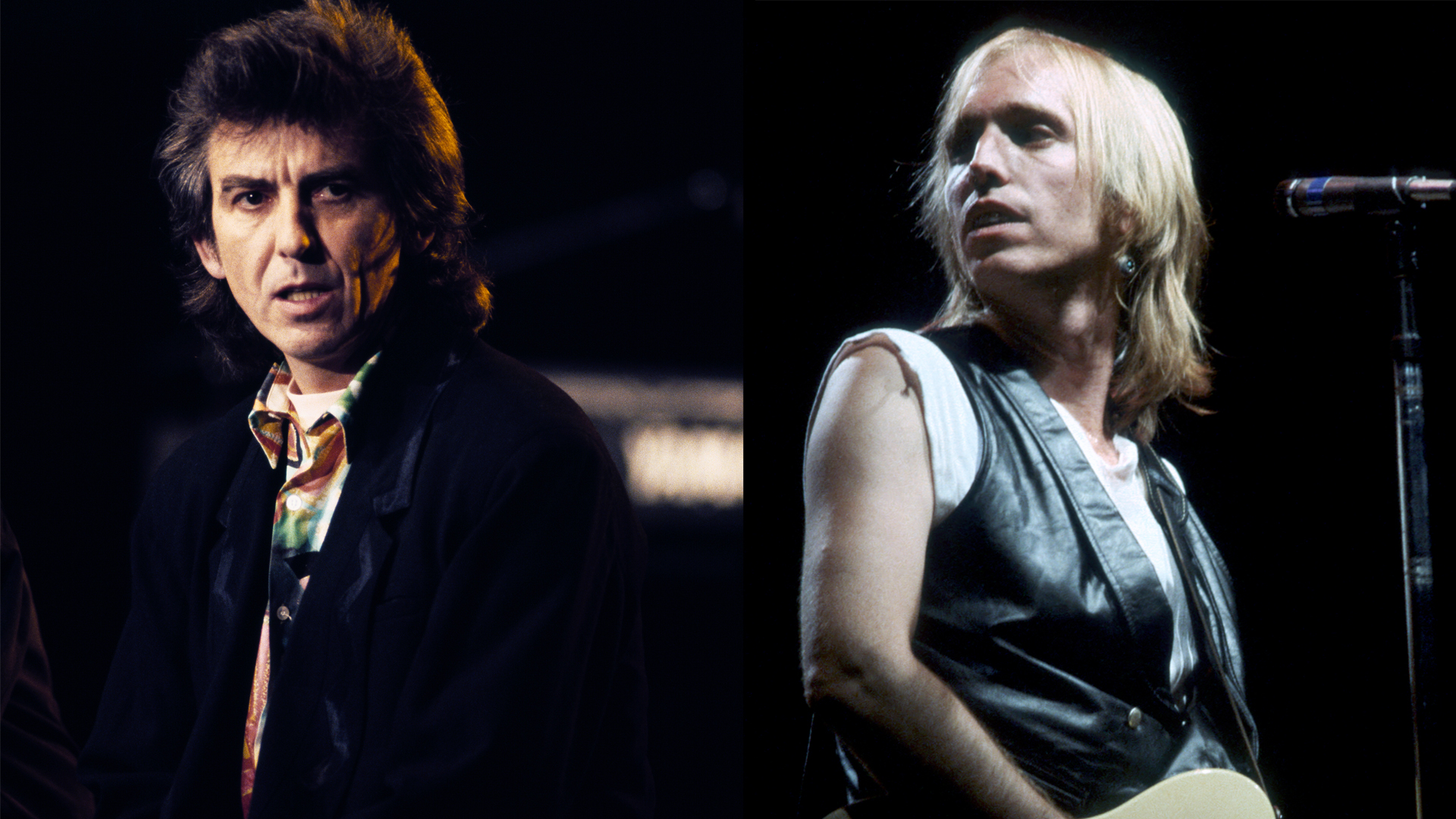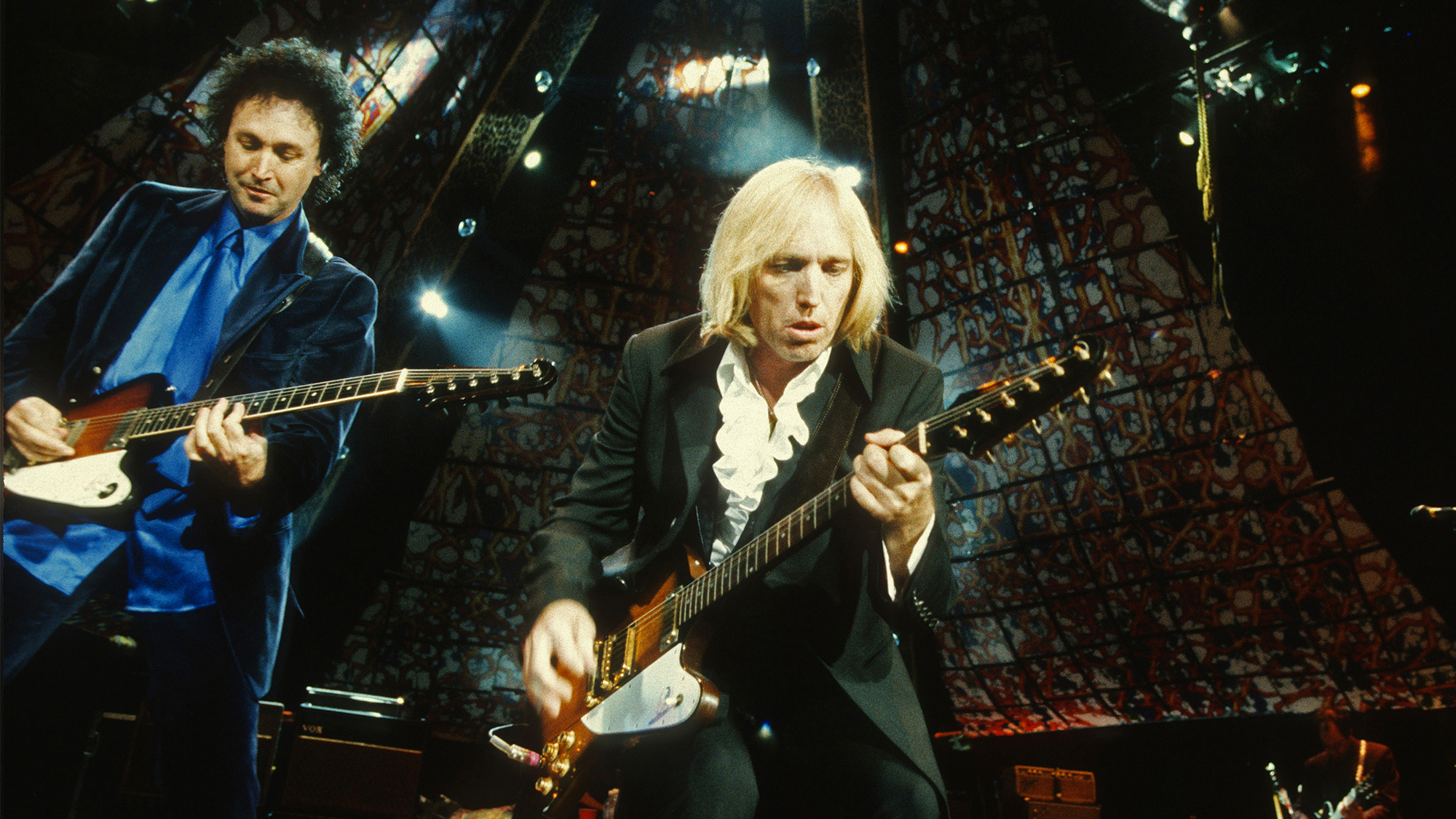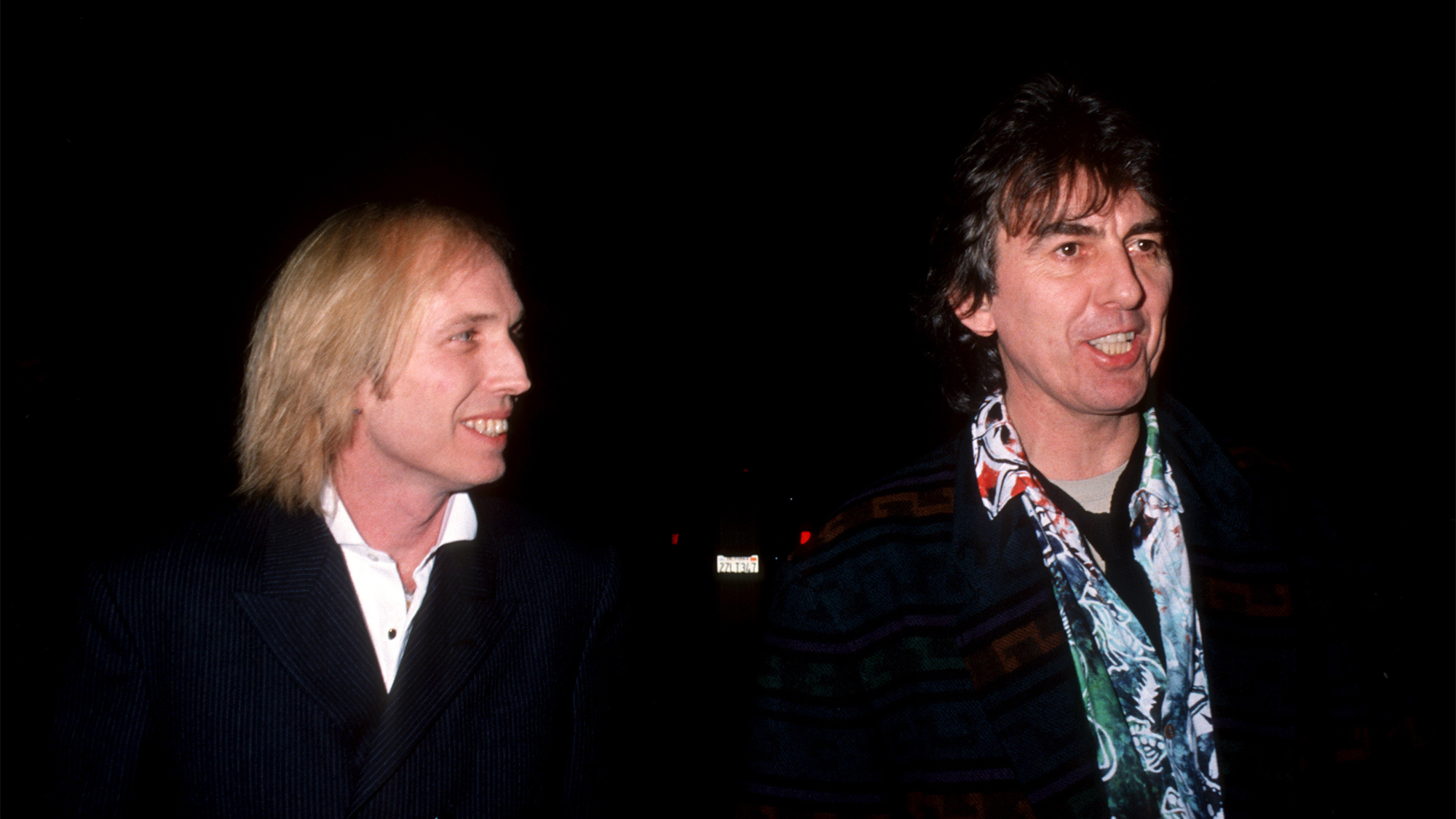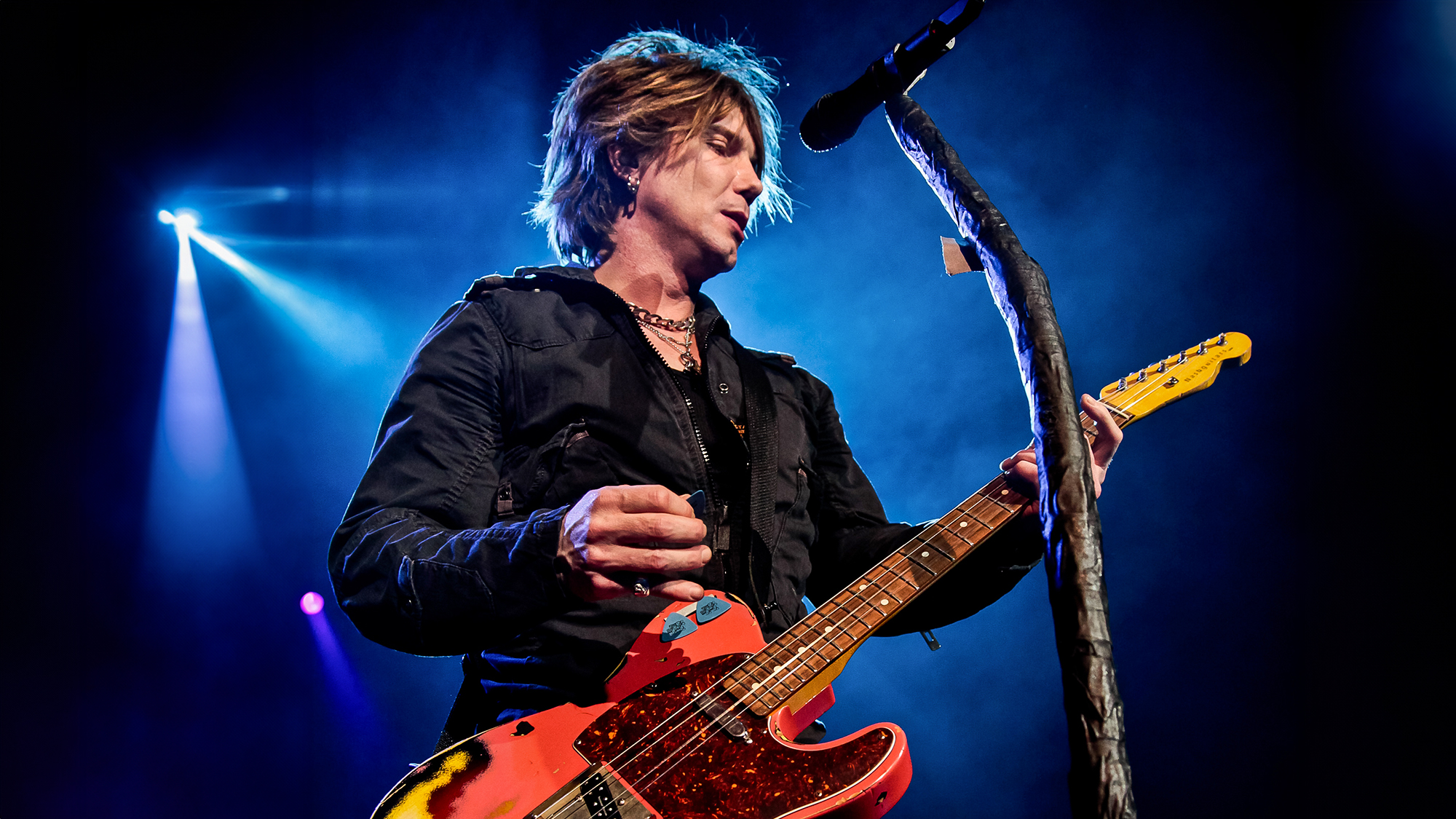“People are always telling me, ‘That song helped me through the worst time of my life.’” Tom Petty on how he almost didn’t record his first solo hit — and how George Harrison helped save the day
The song came out of one of Petty's greatest tragedies but proved almost too personal for him to record

“Of all the songs I've written, I think I get the most feedback about that song,” Tom Petty said of “I Won’t Back Down” in the Peter Bogdanovich documentary Runnin’ Down a Dream. “And it is a personal song. When I did it, I sort of thought that I laid it out, you know, with no ambiguity at all — like, I just said it very plainly.
“And I kind of felt nervous about it, like maybe I should take it back and disguise it a little bit. But I'm glad I didn't — and it's very much like me.”
Released in April 1989 as the lead single from Petty’s first solo album, Full Moon Fever, “I Won’t Back Down” was indeed a personal song. It was inspired by a 1987 arson at Petty’s home in Encino, California.
As Petty, his then-wife Jane Benyon, and their daughter were eating breakfast one morning, they smelled smoke: Someone had broken into the house and set a wood staircase on fire with lighter fluid. Petty and his family escaped, but the house was destroyed, except for — miraculously — his basement recording studio.
“We were shaken for years by it,” Petty told Paul Zollo in the book Conversations With Tom Petty. “I wouldn’t even use the word ‘fire’ in a song or anything. It really frightened me. They didn’t just try to kill me, they tried to wipe out my whole family. And it was a hell of a day. It was my wife’s birthday.”

Petty and his wife rebuilt their house on the property. And he got a chart-topping anthem out of it: “I Won’t Back Down.” Its minimal lyrics are a statement of defiance in the face of hardship and about as straightforward a message as anyone has ever delivered in a song.
Beyond its obvious appeal as a infectious rock track, its stand-tough message has made it an appealing choice over the years for political campaigns, sporting events, labor union strikes and recovery efforts following natural disasters.
All the latest guitar news, interviews, lessons, reviews, deals and more, direct to your inbox!
The song took on new significance for the country following the September 11 attacks, when it re-emerged as a popular radio tune. Petty and the Heartbreakers subsequently performed a version of it for America: A Tribute to Heroes, a telethon that raised funds for victims of the attack.
But as Petty told Guitar Player in his July 2006 cover story, he almost didn’t record it. Not only did it hit too close to home — literally, speaking — but its message felt too direct, especially for a songwriter who prefers a more elliptical style of writing.
“I thought ‘I Won't Back Down’ was too introspective,” Petty told GP. “I was hesitant with that one, because there's not much ambiguity or metaphor in it. It just says it.”
Petty was concerned enough that he consulted with his co-writer, Jeff Lynne, who also performed on and produced Full Moon Fever.
“I remember asking Jeff Lynne if he thought the song might be a little embarrassing. He said, ‘No. It feels great.’
“So I was surprised when it was received the way it was. People are always telling me, ‘That song helped me through the worst time of my life.’”

Petty typically preferred to be less literal in his songwriting, to give the listener room to project their own meaning onto a song. But he said “I Won’t Back Down” demonstrates that you have to let each creation be what it wants to be.
“The thing about songwriting is that there's an exception to every rule,” he told Guitar Player. It's hard to talk about it generally, because each song is so different. I think my best songs are the ones where you can find different levels of meaning in them. Those are the ones I find the most intriguing, but I don't always write that way.
“Sometimes, I'll write a linear kind of thing, such as ‘Into the Great Wide Open,’ which is just straight-on storytelling. But the ones I really like have a bit of ambiguity. I don't have a method that always works. The process is so random, and yet it keeps happening. I just look up every year or so, and I've got 10 more songs. It's not something I work at every day, but I kind of feel that I'm never done writing. I'm always looking for a song.”
And while “I Won’t Back Down” appeals to an iconic American image of going it alone against the system, Petty — who played acoustic rhythm guitar on the recording — got plenty of help when making the song. In addition to Mike Campbell on a Gretsch Clipper electric guitar, including the slide parts, the song features Petty's Traveling Wilburys bandmate George Harrison on acoustic guitar and backing vocals.
Harrison had another vital role in the song’s recording. He came to the rescue when Petty was too congested to sing.
“I had a terrible cold that day,” Petty told Mojo, “and George went to the store and bought a ginger root, boiled it and had me stick my head in the pot to get the ginger steam to open up my sinuses, and then I ran in and did the take.”
Released in April 1989, “I Won’t Back Down” reached the top spot on the Billboard U.S. Rock chart, an impressive achievement for his first solo single.
Roughly 25 years later, “I Won’t Back Down” returned to prominence once again when singer Sam Smith claimed to have inadvertently copied the song for his 2014 hit “Stay With Me.” The singer’s publisher agreed to credit Petty and Lynne as co-writers and pay them 12.5 percent of the song’s royalties.
Petty for his part said he believed Smith’s appropriation wasn’t intentional.
"All my years of songwriting have shown me these things can happen,” he said. “Most times you catch it before it gets out the studio door but in this case it got by. Sam's people were very understanding of our predicament and we easily came to an agreement.”
Christopher Scapelliti is editor-in-chief of GuitarPlayer.com and the former editor of Guitar Player, the world’s longest-running guitar magazine, founded in 1967. In his extensive career, he has authored in-depth interviews with such guitarists as Pete Townshend, Slash, Billy Corgan, Jack White, Elvis Costello and Todd Rundgren, and audio professionals including Beatles engineers Geoff Emerick and Ken Scott. He is the co-author of Guitar Aficionado: The Collections: The Most Famous, Rare, and Valuable Guitars in the World, a founding editor of Guitar Aficionado magazine, and a former editor with Guitar World, Guitar for the Practicing Musician and Maximum Guitar. Apart from guitars, he maintains a collection of more than 30 vintage analog synthesizers.

